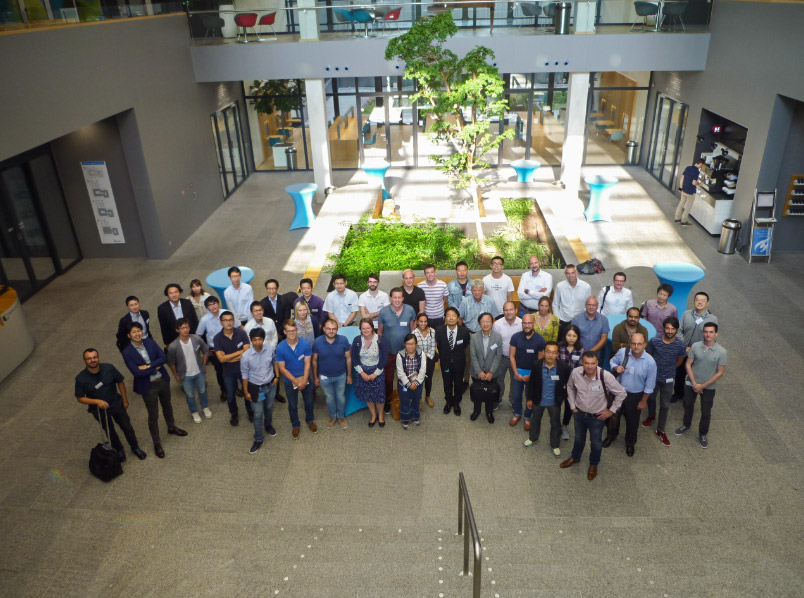News & Topics
JST-TU Delft Joint Symposium “Innovating Methodologies in Catalysis”
September 5, 2019
Strategic Basic Research Programs
The JST-TU Delft joint symposium was held at Delft University of Technology (TU Delft) in the Netherlands from August 26 to 27, 2019, themed on developing innovative catalysts technologies particularly to discover new methodologies in catalytic science.
Since 2015, JST has been promoting research and development for creating innovative catalysts to realize a sustainable society, which requires the utilization of diverse natural carbon resources. Catalyst development collaborating with the fields of material synthesis, advanced measurement techniques, and theoretical/computational techniques has been trending globally along with the progress of nanotechnology. International cooperation is particularly important for accelerating development of catalysts and discovering methodologies to create new paradigms. The symposium was organized for international collaboration with European countries and research institutions, such as TU Delft, which is the world leading research institute in the areas of catalytic chemistry and chemical engineering. Approximately 60 researchers, of which 10 researchers are from Japan, participated in the symposium.
The symposium comprised various lectures concerning the cutting-edge catalytic science themes, including 1) catalytic materials and processes that can effectively convert carbon resources, such as methane or lower alkane; 2) advanced measurement methods that support material development; and 3) theoretical/computational methods that lead to understanding of the dynamics of catalytic reactions. Professor Wataru Ueda, Research Supervisor of CREST— “Innovative Catalysts,” spoke on a brief summary of CREST-PRESTO “Innovative Catalysts” program in the opening remarks.
Participants not only exchanged information in each technology but also engaged in the discussions on wide-range of topics, such as a role of catalysts in the low-carbon society, the possibility of informatic approach to accelerate catalysts development, and how international collaboration should be. Moreover, a laboratory tour was organized by TU Delft comprising a visit at a facility, which equipped highly secured high-pressure reactors protected by concrete walls. Japanese researchers were impressed by these exceptional facilities that are not seen at research institutes in Japan.
Even if we simply speak about catalytic science, there are significant differences among them depending on the individual researcher’s approach and method and each country’s style and culture. Professor Atsushi Urakawa of TU Delft, PRESTO researcher and an organizer of the symposium expected that sharing and fusing these differences may create new methodologies in catalytic science in the future. We, a team of CREST-PRESTO— “Innovative Catalysts,” will follow up further enhancement of researchers’ network between Japan and European countries, such as the Netherlands, in response to the symposium.
- PRESTO [Innovative Catalysts] Science and Creation of Innovative Catalysts
- https://www.jst.go.jp/kisoken/presto/en/research_area/ongoing/areah27-3.html
- CREST [Innovative Catalysts] Innovative catalysts and creation technologies for the utilization of diverse natural carbon resources
- https://www.jst.go.jp/kisoken/crest/en/research_area/ongoing/areah27-3.html

